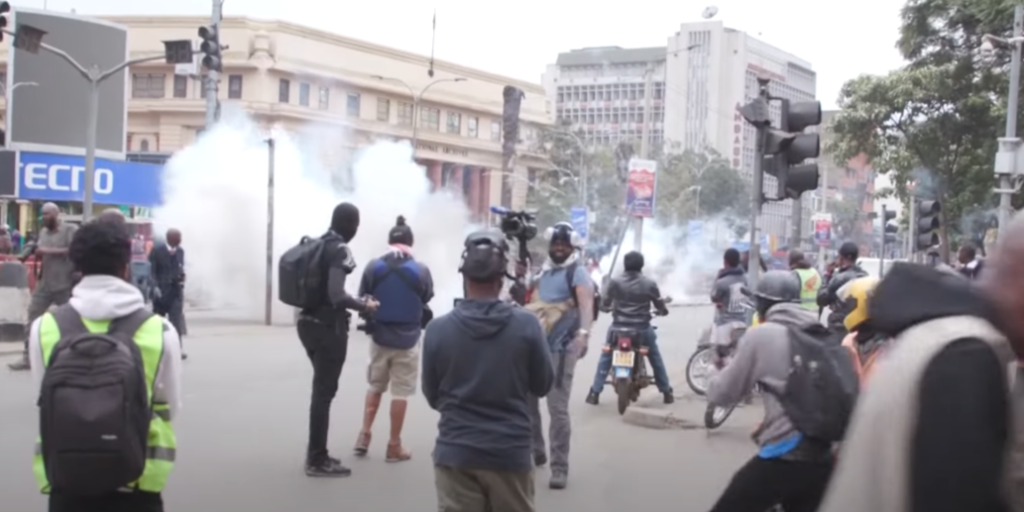At least one person was killed in the anti-government protests across Kenya.
Others are reading now
At least one person was killed in renewed anti-government protests across Kenya on Tuesday, as demonstrators clashed with police demanding President William Ruto step down.
Youth-led protests against proposed tax hikes have continued, even after President Ruto withdrew the legislation and dismissed most of his cabinet.
Activists are calling for Ruto to resign and for changes to fight corruption and bad governance.
Fatal Clashes
The Kenya National Commission on Human Rights (KNCHR) reported that at least 50 people have been killed in the protests so far.
Also read
In Kitengela, near Nairobi, police fired at hundreds of protesters, some of whom threw rocks. Protesters also burned tires, waved Kenyan flags, and chanted “Ruto must go!”
A Reuters reporter saw a protester lying dead with a head wound. The national police spokesperson declined to comment, but the interior ministry said security agencies were told to use restraint.
Widespread Demonstrations
Tuesday’s demonstrations were among the largest since the tax increases were withdrawn on June 26, with protests in at least 23 of Kenya’s 47 counties.
In Nairobi’s city center, riot police fired tear gas at dozens of protesters, and medics carried away an injured person. In Nakuru, a journalist was injured, with TV footage showing her bleeding from her thigh.
Njeri Wa Migwi, an activist in downtown Nairobi, said the protest was peaceful until police started firing tear gas.
“Today feels very insidious. It was like the police were out to get us,” she said.
Debt Crisis and Economic Pressure
The protests have created the biggest crisis of Ruto’s two years in power. Kenya spends over 30% of its revenues on interest payments for its debt, forcing Ruto to balance lender demands to cut deficits with a population struggling with rising living costs.
“Ruto is very incompetent,” said a protester in Nairobi. “The guy is a puppet to the IMF.”
The IMF has been criticized by protesters for allegedly pushing the proposed tax hikes. The IMF claims its programs aim to help Kenya overcome economic challenges and improve its people’s well-being.
Government Response
Ruto’s office announced “multi-sectoral” talks to address protesters’ grievances, but there was no sign they had started. Leading activists have rejected the invitation, demanding immediate action on issues like corruption.
Ruto’s spokesperson did not respond to requests for comment.
The protests, initially peaceful, turned violent. Some demonstrators briefly stormed parliament on June 25, prompting police to open fire. Besides the 50 deaths, KNCHR reported 413 injuries, 682 arbitrary detentions, and 59 abductions or disappearances related to the protests.
Ruto has promised to investigate abuse claims but defended the police’s actions. He accepted the resignation of the national police chief last week, a key demand of the protesters.
On Monday, Ruto accused the Ford Foundation of sponsoring those causing “violence and mayhem” in Kenya, without providing evidence. The Ford Foundation denied the claim, stating it does not fund or sponsor protests and maintains a non-partisan policy for its grants.


